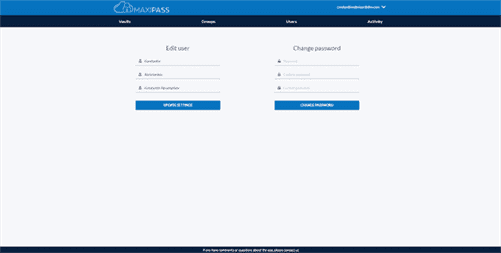The cross-platform solution can be a good option to consider for startups and companies with smaller budgets because it allows them to reduce development costs. The more people you have working on one project, the greater the effort required for communication and collaboration. Since code is not highly specified according to device or platform, users may experience some performance delays. Statistics show that, among global developers, Flutter is the most popular cross-platform mobile framework. 42 percent of software developers use Flutter, while 38 percent use React Native, which is the second-most popular mobile framework for cross-platform development.
However, the high quality and no friction when implementing features of any complexity are the benefits of native app development. In the case of cross-platform and hybrid apps, the same codebase is developed for all platforms , whereas native apps demand a separate codebase for iOS https://www.globalcloudteam.com/ and Android. That is why native app development tends to be more expensive than cross-platform and hybrid app development. Now as we are aware of all three mobile app development frameworks, the next question that strikes the mind of business owners is which is the best approach.
3. The Verdict Between Native App vs Cross-Platform App Development
The number of solutions that Native development has to offer is enough to handle both development and debugging to a much efficient extent. This ease of interaction with the device’s native features that the development approach offers improves the overall app’s performance, specifically when rendering multimedia content. Our client wanted to develop a mobile app solution for his laundry app business. To empower his on-demand laundry service app, he proposed his idea to our app development consultant. We analyzed the idea and developed a complete plan to turn his idea into a live app. The development teams and the methodologies will differ for iOS, Android, and Windows apps.
- So if the time-to-market is a big deal for you, then most probably you should go with cross-platform mobile app development.
- I prefer Visual Studio for Mac as this is best for developing cross platform applications targetting iOS and Android.
- It’s vital to understand that native vs cross-platform app development doesn’t include the hybrid approach.
- When deciding between cross-platform and native app development, it’s essential to consider the specific requirements and constraints of your project.
- However, when it comes to the development of mobile app types, native vs. cross-platform debate is always on!
Based on the survey, 42 percent of software developers used Flutter. On the whole, roughly one third of mobile developers use cross-platform technologies or frameworks; the rest of mobile developers use native tools. Cross-platform allows mobile app developers to reuse almost 50-80% of the code to develop apps. When choosing between different approaches and frameworks, you need to be confident that the platform vendor will continue supporting it over the long term. You can dig into the details about the provider, the size of their community, and adoption by global companies. For example, Kotlin Multiplatform Mobile was developed by JetBrains, Flutter by Google, and React Native by Facebook.
React Native
On the other hand, Android Xamarin apps rely on Just-In-Time compilation to compile into native assembly code at runtime. Developing certain platform-specific modules still requires a native developer. The execution of a React Native’s mobile app can be seen in apps such as Artsy, Bloomberg, and Delivery.com. Before 2015, Facebook had been working on it as a part of its internal hackathon project since 2013. The major idea was to bring the perks of web development to mobile while maintaining cross-platform compatibility.

Mobile application development is a process of creating unique user experiences by engaging the target customer with responsive features. However, when it comes to the development of mobile app types, native vs. cross-platform debate is always on! Cheesecake Labs is proud to be one of the best mobile app developers in Latin America. We are trusted by a long list of mid-market and enterprise clients to deliver high-quality apps that work seamlessly on multiple devices.
Drawbacks of Cross-Platform App development
Native app developers create special “versions” of their apps for iPhones and Android phones. So, they look great and work perfectly no matter which kind of phone someone has. They use specific programming languages to ensure everything runs smoothly without glitches. Development of a native application would require twice as many people – designers, developers, and testers to make the whole process happen – something that shows itself on the final bill. When it comes to languages, frameworks, and tools, Native app development platforms are a lot more generous than their cross-platform counterpart.

This makes it a better alternative if you are an IT business owner with restricted time to dedicate to app publicity. Cross-platform development is creating an app that works across multiple platforms. It allows you to write code once and reuse it across multiple platforms. Besides, native app platforms such as Android Studio or XCode frequently include ready-made templates to help reduce errors. So, in conclusion, native apps can mimic the appearance and feel of iOS platforms, offering an easy route to good UX.
Need high-end mobile app development from true experts? —
And because you’re now adept about these frameworks, making a final choice might not be that difficult. In my opinion, you should make the call based on the needs of your project, the timeline, and the budget. Still doubtful about choosing between native vs cross-platform mobile app development?

User experience – The success of your app will depend largely on how users interact with it. These days, apps built by experienced developers on React Native and Flutter are as smooth as native apps. But while native cross-platform frameworks have come a long way in accessing device-specific features, they can’t leverage all the functions native development can.
What is native app development?
Cross-platform mobile apps are becoming the more modern solution as Google’s Flutter and Facebook’s React Native are gaining more popularity due to their efficiency when it comes to time and cost. Unfortunately, the cost you risk sacrificing the quality of your app in the process. Native applications have the edge over cross-platform applications for user experience. Every operating system has a specific design style and native elements. So, the user experience will be seamless when you leverage the native elements for the user interface. User experience is where your mobile application turns engagement into conversion!

This ability to eliminate the need for a JavaScript bridge gives Flutter a significant edge in terms of startup times and overall performance. Though quite new to the game, Flutter has already made quite some waves in the market and has gained wide acceptance, as react native vs flutter well. It’s also a great solution that iOS developers of all skill levels find really helpful. Furthermore, other alternative IDEs still require you to have XCode installed. Native development is also often more capital intensive both initially and post-launch.
Development cost and your budget
Cross-platform development involves the usage of a single code base across platforms. The codebase is combined with OS runtime environments for execution. So, these environments interpret the app’s code at runtime and execute it.